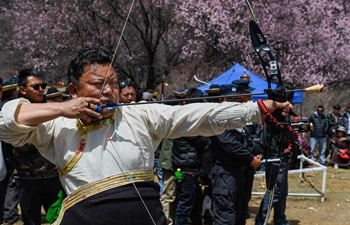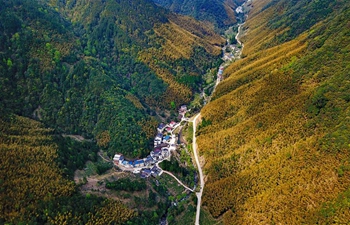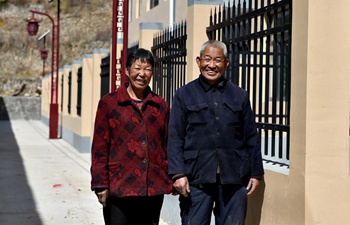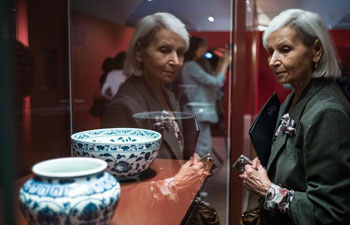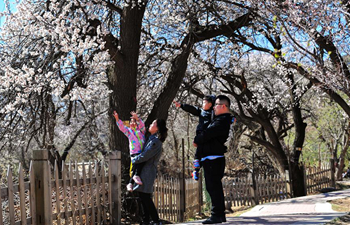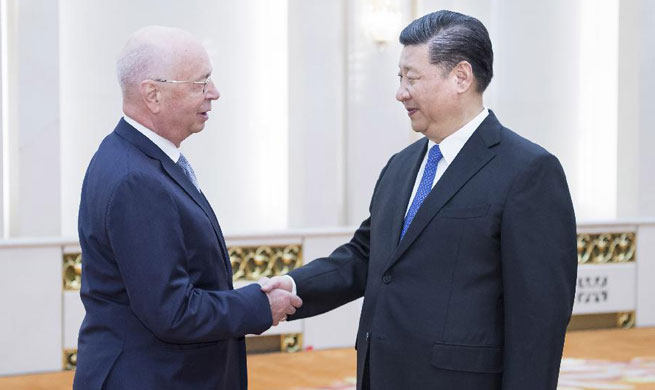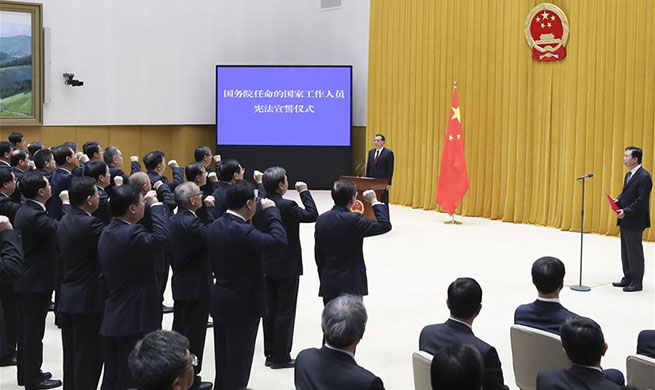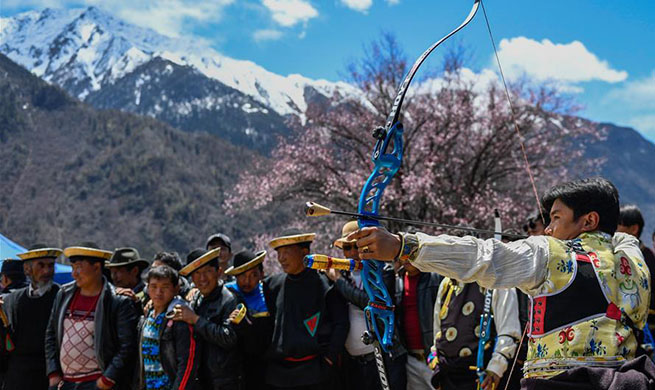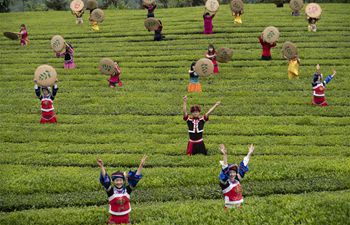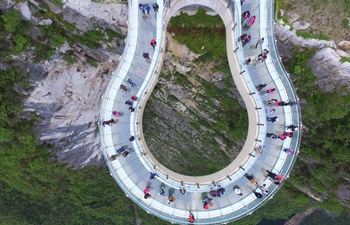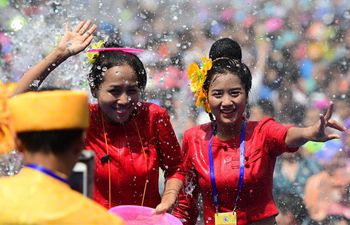By sportswriter Wu Shuguang
JINAN, China, April 17 (Xinhua) -- A grey-haired couple from east China' Anhui Province just completed another road running race last Sunday, proving that races are not just for the young.
Sunday saw a total of more than 40 road races across China featuring at least 260,000 runners.
Zhang Liangyou, 91, and his wife Shang Diane, 86, have just participated in a half-marathon in Hefei, capital city of Anhui Province.
"We now could not complete the race by the cut-off time, but we enjoy standing on the course. We will go on with running as long as our body does not fail us," said Zhang.
In the early 1950s, Zhang, then a running lover and coal miner from Anhui, went to buy a book about long-distance running after a 10000m race in Shanghai. A bookseller showed him a book about marathon, and the book put a running dream in him from then on.
Due to his illiteracy, Zhang had others read to him and followed the training instructions step by step.
"I ran 30km at first, then 40km, and finally could run up to 50km" said Zhang, adding that he trained for two years.
After testing his marathon time in 1957, Zhang reckoned that his finishing time could match that of the elite runners. "I was thrilled, and wrote to the sports bureau to ask to hold a marathon,"said Zhang.
Several officials from sports bureau later contacted him, and Zhang completed the marathon. China's Track & Field History published in 2006 included a line: "Zhang Liangyou finished the marathon with 2 hours 54 minutes and 34.6 seconds in Hefei in 1957." Zhang remembers the time well, even at 91 years old.
"Many laughed at me when running, especially with shorts in winter. I kept running," said Zhang, who also led his wife to the running course.
Shang Diane used to suffer from breathing problems, so she cycled to keep fit at the beginning.
"After cycling for three years, I began to run with him," Shang told Xinhua, adding that she took to running in the 1980s, and later ran marathon.
"We run in the morning and afternoon except on rainy days," said Shang. "Six of eight family members ran in the 2014 China Zhengkai International Marathon in Zhengzhou. It was simply gorgeous to run with family."
The many road races on April 15 in China drew a wide range of participants, and many shared running photos on social media.
"Perfect running course, amazing audience and the fresh smell of Spring. See you next year," Zhu Xiaoyang, a Hangzhou-based, judge wrote on Wechat after finishing a half-marathon in Hangzhou.
The number of marathon races held in China has increased rapidly in recent years.
In 2011, China only hosted 22 marathons, but the number of marathons and road running races reached 328 in 2016, a 150% increase over 2015, according to Chinese Athletics Association (CAA).
The CAA said in January that China's marathon industry rose 20 percent from 2016 and reached 70 billion yuan (some 10.96 billion US dollars) in 2017.
A total of 1,102 distance running events were held in China in 2017, 256 of which were hosted or co-hosted by the CAA; the total number of participants reached some 4.98 million, according to the CAA.
"More cities even at the county level are hosting marathons to promote tourism and their images, as they usually pick out unique routes through scenic spots and historical sites," said Huang Shunong, vice director of the Wuhu sports bureau in Anhui.
Wei Pulong, director of Hefei marathon association, gave three factors to explain the marathon rush on April 15.
"First, China has more marathon runners. Second, the weather in April is suitable for running, a golden month for marathon. Also, the runners can go back to work after Sunday's race," said Wei.
The marathon events will continue to grow in the future, according to an official with the CAA. "The number of the events is expected to increase to 1,900 by the year 2020, with some 10 million participants, and the industry can reach 120 billion yuan by then," said the official in January.
"We hope to see more running races, and more Chinese to make the final top places," Zhang Liangyou told Xinhua.




